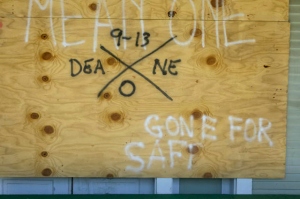The UNH Library is pleased to announce the addition of several more databases with enhanced full-text for both primary sources and scholarly articles. And while these are especially helpful for students and faculty working in history, they are useful for research in other fields, as well.
 One new source is the American Antiquarian Society Historical Periodicals Collection (1691- 1837), which provides digital access to an unparalleled collection of American periodicals. The product of a partnership between EBSCO and the American Antiquarian Society, these collections contain over two million pages from some 1,500 periodical titles. The full text content is available through EBSCO’s Historical Digital Archive Viewer, which combines the experience of browsing and reading original sources with the convenience of keyword access, a variety of page views, note-taking capabilities, and numerous downloading options. It is also searchable through the standard EBSCO interface provided by the UNH Library. This content complements that offered by Early American Imprints (1639 – 1819) and eventually will provide full text access to American periodicals published through 1877.
One new source is the American Antiquarian Society Historical Periodicals Collection (1691- 1837), which provides digital access to an unparalleled collection of American periodicals. The product of a partnership between EBSCO and the American Antiquarian Society, these collections contain over two million pages from some 1,500 periodical titles. The full text content is available through EBSCO’s Historical Digital Archive Viewer, which combines the experience of browsing and reading original sources with the convenience of keyword access, a variety of page views, note-taking capabilities, and numerous downloading options. It is also searchable through the standard EBSCO interface provided by the UNH Library. This content complements that offered by Early American Imprints (1639 – 1819) and eventually will provide full text access to American periodicals published through 1877.
In addition, the UNH Library has expanded it subscriptions to America: History and Life and Historical Abstracts to include extensive full text access. America: History and Life with with Full Text indexes sources on the history of the United States and Canada from prehistory to the present. Coverage is from 1964 to the present from over 1,700 journals and it is updated monthly. The full text version provides full text coverage of nearly 200 journals and over 90 books. It includes abstracts for the remainder. In addition, it includes book and media reviews and citations to abstracts of dissertations as well as journal article citations. It also provides links to full text content provided to the Library through JSTOR, Project Muse, and the History Cooperative.
 Historical Abstracts with Full Text indexes sources on world history from 1450 to the present (excluding the United States and Canada). Coverage is from 1955 to the present from over 2,500 journals in over 40 languages. The full text version provides full-text coverage to more than 350 journals and 130 books; it provides abstracts for the rest. In addition, it includes book and media reviews and citations to abstracts of dissertations as well as journal article citations. And like America: History and Life, it provides links to full text content provided through JSTOR, Project Muse, and the History Cooperative.
Historical Abstracts with Full Text indexes sources on world history from 1450 to the present (excluding the United States and Canada). Coverage is from 1955 to the present from over 2,500 journals in over 40 languages. The full text version provides full-text coverage to more than 350 journals and 130 books; it provides abstracts for the rest. In addition, it includes book and media reviews and citations to abstracts of dissertations as well as journal article citations. And like America: History and Life, it provides links to full text content provided through JSTOR, Project Muse, and the History Cooperative.
If you haven’t already, put them to the test and be sure to share this information with your students and colleagues.




 This weekend will mark the fourth anniversary of Hurricane Katrina’s landfall east of New Orleans; it was the catalyst for immediate and long-term suffering on the part of Gulf Coast residents. To add insult to injury, Hurricane Rita struck southwestern Louisiana a few weeks later.
This weekend will mark the fourth anniversary of Hurricane Katrina’s landfall east of New Orleans; it was the catalyst for immediate and long-term suffering on the part of Gulf Coast residents. To add insult to injury, Hurricane Rita struck southwestern Louisiana a few weeks later.